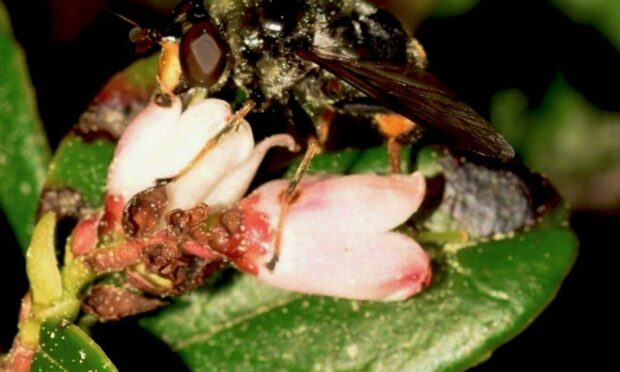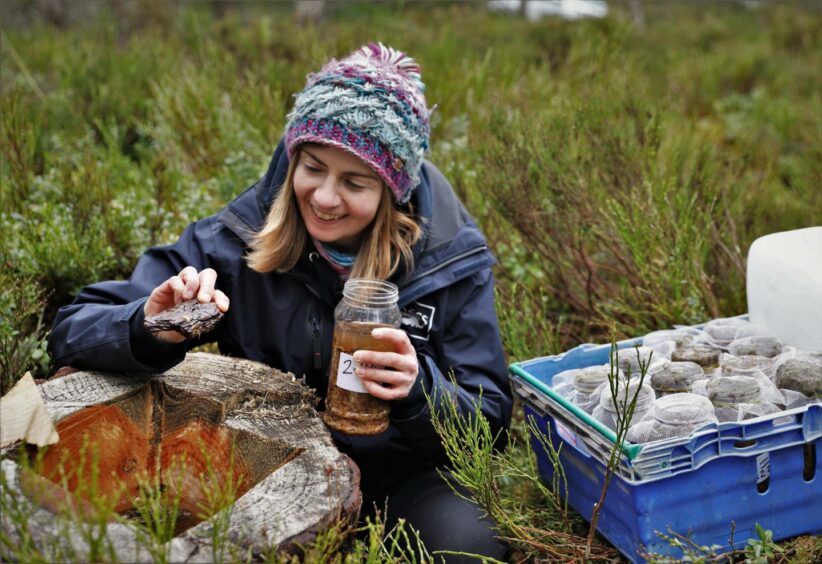An adult pine hoverfly has been spotted in the wild in Britain for the first time in nearly 10 years thanks to successful conservation efforts in the Cairngorms.
The discovery of the adult female of the critically endangered species follows staggered releases of larvae in October 2021 and March 2022 at RSPB Abernethy and Forestry and land Scotland Glenmore, sites carefully managed for conservation.
Larvae were bred as part of the Royal Zoological Society of Scotland’s (RZSS) conservation breeding programme for the species, which is based at Highland Wildlife Park near Kingussie.
Experts said the sighting of the adult is an early sign of success for the Rare Invertebrates in the Cairngorms (RIC) project.
‘Hope these adults will mate’
Dr Helen Taylor, conservation programme manager at RZSS said: “This discovery is a huge step for pine hoverfly conservation and recovery, showing the larvae which were released are surviving through to adulthood.
“There is now hope these adults will mate and produce a new generation of wild pine hoverflies, which is a key step in establishing new wild populations.
“As one of our most endangered native species, pine hoverflies are important to forest ecosystems, acting as both pollinators and waste recyclers.”
Pine hoverflies are only known to inhabit one small forest patch in the Cairngorms National Park, but the conservation project aims to establish healthy new populations in other areas across Scotland.
Genevieve Tompkins, RIC project officer said: “Habitat management carried out for pine hoverflies creates a more diverse forest, benefitting multiple different species, so this is a fantastic moment for Caledonian pine forest ecosystems as a whole.
“We will better understand the true level of success of this year’s breeding season in September, when we survey for new larvae produced by the adults that are currently emerging. But for now, it is wonderful to be able to celebrate this exciting moment.”
The RIC project is a partnership between the RSPB, Cairngorms National Park Authority, RZSS, Buglife Scotland, Butterfly Conservation Scotland and NatureScot.


Conversation